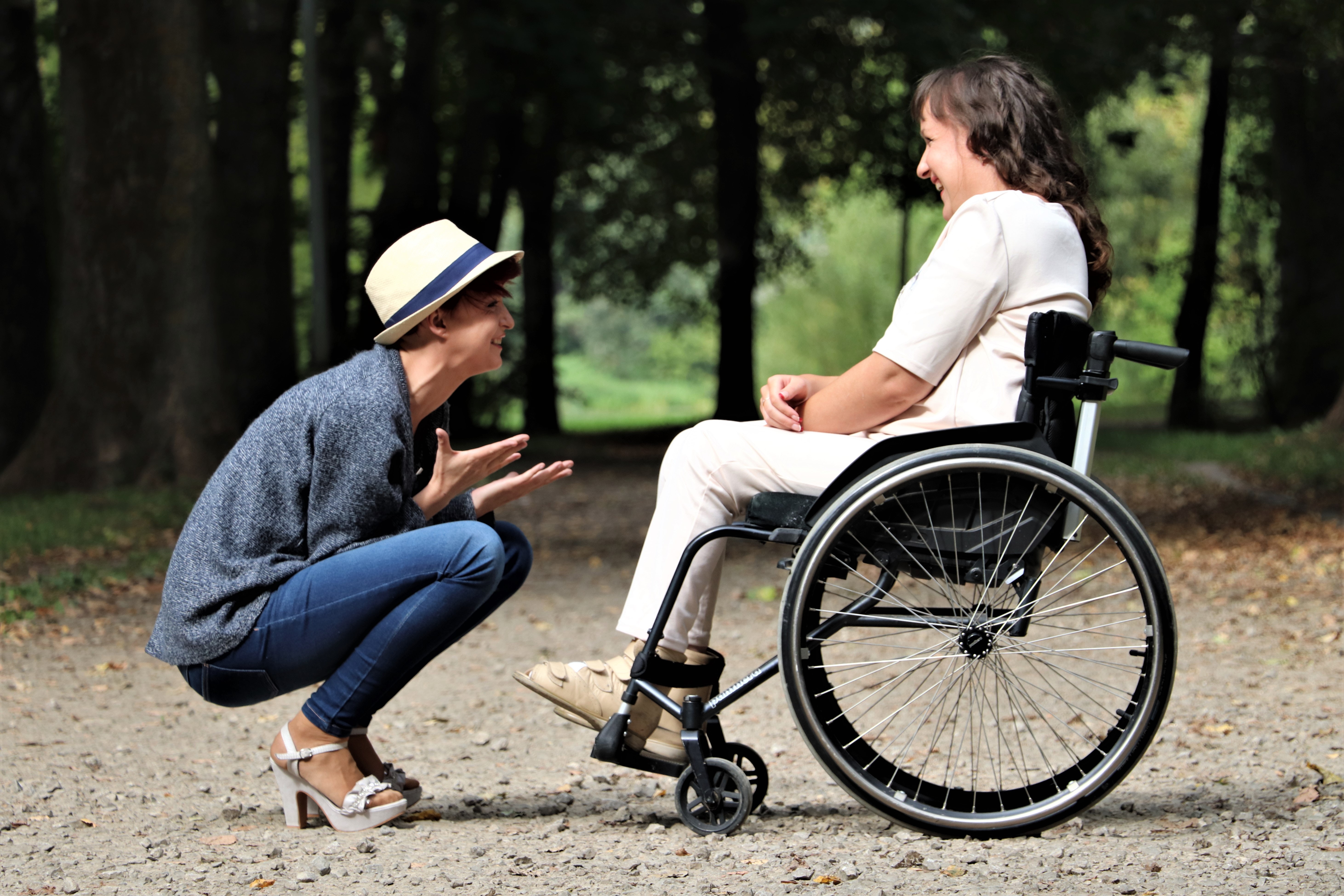
The sheer amount of misconceptions and prejudice surrounding the PWD experience is unfortunate, but equally unsurprising.
Much of an individual’s perspective is limited by default. After all, many truths are only made clear when one has lived through a related experience.
That said, even if you can’t relate to the PWD experience, you can easily make yourself aware of their perspective through reading and conversation, then use it to challenge your own assumptions.
Let’s explore several myths related to PWDs, why they’re wrong and how you can foster greater understanding toward this community:
Myth #1: It’s rude for children to ask about someone’s disabilities
Children are often highly curious, and it’s this curiosity that can lead to very blunt questions about a person’s condition.
Yet in most situations, scolding a child for asking a PWD about their experience is a mistake.
Most PWDs, just like anyone else, understand that children mean no harm and so are more than happy to answer questions.
The questions themselves allow for the child to develop awareness toward experiences he or she is unfamiliar with.
You do not want to associate that desire for awareness with bad behaviour. Unless it’s truly inappropriate, advise your child to rephrase the question, but do not prevent them from asking it.
Myth #2: The PWD lifestyle is completely different from abled individuals
The vast majority of PWDs adapt very well to their physical or learning challenges and end up living very normal lives.
For the most part, their lives are pretty relatable. Many PWDs enjoy the nightlife, endure traffic to get to work on time, get married, take care of the kids and do their own shopping.
While there is a need to be considerate of their lived experience, it’s not difficult for the lifestyle of an abled individual and a PWD to intersect.
Myth #3: Wheelchair use is confining and people who use them can’t walk
Perhaps you wouldn’t compare a wheelchair to a bicycle, car, or a skateboard. Yet the similarity is that all of them enable you to get around more effectively.
All these devices are ultimately personal assistive devices. And such devices, including wheelchairs, exist to provide greater freedom of movement, not to confine.
It’s also easy to assume that people in wheelchairs are completely unable to use their legs.
In reality, people who use wheelchairs aren’t necessarily dependent on them fully. Many individuals in wheelchairs can walk to some extent or are at least capable of tending to their daily needs without another person assisting them.
Myth #4: PWDs are more comfortable around other PWDs
Such an opinion is often used as an excuse for prejudice. Sure, focused communities are established all the time to bring together people with similar challenges, goals and experiences.
This does not mean that these communities – and the individuals that define them – prefer being in an echo chamber.
On the contrary, PWDs are getting more opportunities than ever to comfortably be part of mainstream society. This includes working the same jobs, enjoying the same hobbies and appreciating the same lifestyle as abled individuals.
Most people can comfortably bond with those that have very different views and experiences. It’s rather unusual to imply that this no longer remains the case for PWDs.
Myth #5: PWDs are automatically courageous, strong individuals
Glorifying a community is not the same as truly understanding and respecting them.
Living with physical or learning limitations is about one’s capacity to adapt. Being adaptable is great, yet a very normal human trait and not by itself a sign of bravery and strength.
It’s nice to be supportive and appreciate someone’s ability to overcome their disabilities. That said, there’s such a thing as excessive compliments.
Anyone would be annoyed if they were repeatedly complimented for doing simple tasks. By the same token, it doesn’t help to glorify what PWDs consider to be a very normal aspect of their lives.
If you look beyond the physical and learning differences, you’ll find that PWDs are simply people, deserving of the same considerations and respect that you’d give to anyone else.
So don’t be so quick to believe the myths. Instead, challenge your own assumptions – you might discover it’ll do you a lot of good.
References:
Easterseals (2023) Myths and Facts About People with Disabilities [Accessed 17 May 2023] Available at: https://www.easterseals.com/support-and-education/facts-about-disability/myths-facts.html
Aruma (2019) 10 myths about disability [Accessed 17 May 2023] Available at: https://www.aruma.com.au/about-us/blog/10-myths-about-disability/